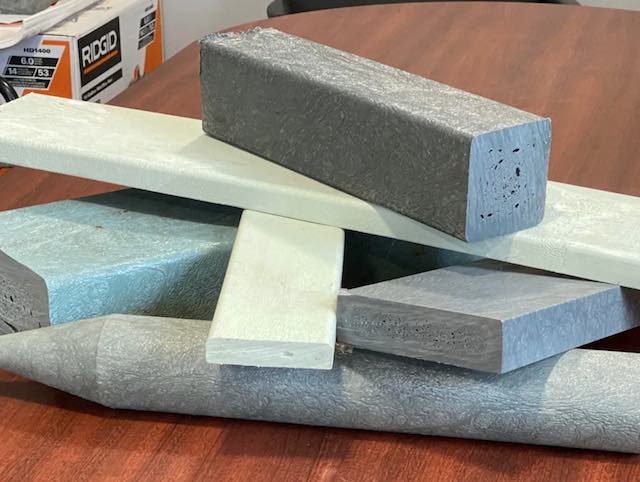
Roughly 80% of the plastic recyclables collected throughout Halifax, Nova Scotia are now being processed by Goodwood Plastic Products Ltd so they can be turned into building blocks.
The plastic lumber can be drilled, nailed, glued, and handled the same way as wooden lumber—but without any of the same deterioration.
The other 20% of municipal plastics are reportedly being sent to other Canadian recycling markets, but Halifax Solid Waste Division Manager Andrew Philopoulos says that provincial legislators are particularly grateful for Goodwood’s initiative.
“We are very, very fortunate here in Nova Scotia to have that local company taking the material,” he told CBC’s Information Morning. “Without them, I think we would find it challenging to find a market for a lot of the plastic packaging that we are collecting.”
Goodwood also made a name for themselves back in December when they partnered with a Sobeys grocery store in order to create one of the nation’s first parking lots made entirely out of post-consumer plastics saved from local landfills.
Although the bulk of Goodwood’s recycled plastic comes from single-use bags, they also process food jars and other common consumer packaging.
Thus far, CBC says that the lumber has been used to make everything from picnic tables and park benches to agricultural posting and guardrail structures—and Goodwood vice president Mike Chassie says he hopes their business model will inspire other regions to launch similar ventures.
“We can take this business—the knowledge and our skills—and we can export it and take it to other places,” he told the news outlet. “Post-consumer plastic is not going away, so we need to continue to find ways to give it a new life so it becomes a resource, instead of a waste.”
Article Credit: goodnewsnetwork
